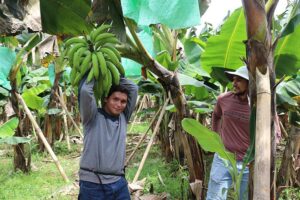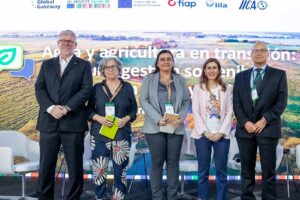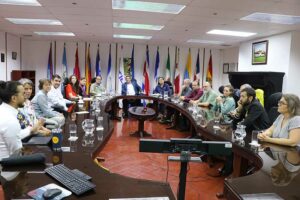CATIE and Embassy of United Arab Emirates encourage dialogue on water harvesting in arid zones
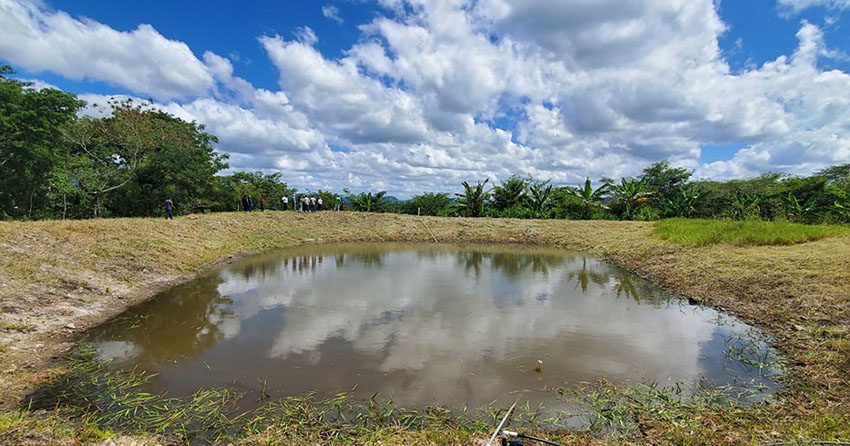
- Key actors addressed water resource management in a context of scarcity.
November 13, 2023 The Embassy of the United Arab Emirates and CATIE (Tropical Agricultural Research and Higher Education Center) co-organized a talk on water harvesting in arid zones, an issue of high priority for the Arab country, as well as for Costa Rica, in which CATIE has accumulated decades of experience.
During the talk, on November 8, Rawdha Alotaiba, Ambassador of the United Arab Emirates in Costa Rica, shared the initiatives her government is carrying out for water production and stressed the importance of this vital resource.
Muhammad Ibrahim, Director General of CATIE, introduced the talk and Laura Benegas, Coordinator of CATIE's Watershed, Water Security and Soil Unit, presented the trends in access to water in Central America, the main challenges and the methodology developed by CATIE in the Nicaraguan Dry Corridor under el proyecto the project Adaptation of Agriculture to Climate Change through Water Harvesting in Nicaragua, in collaboration with the Swiss Agency for Development and Cooperation (COSUDE).
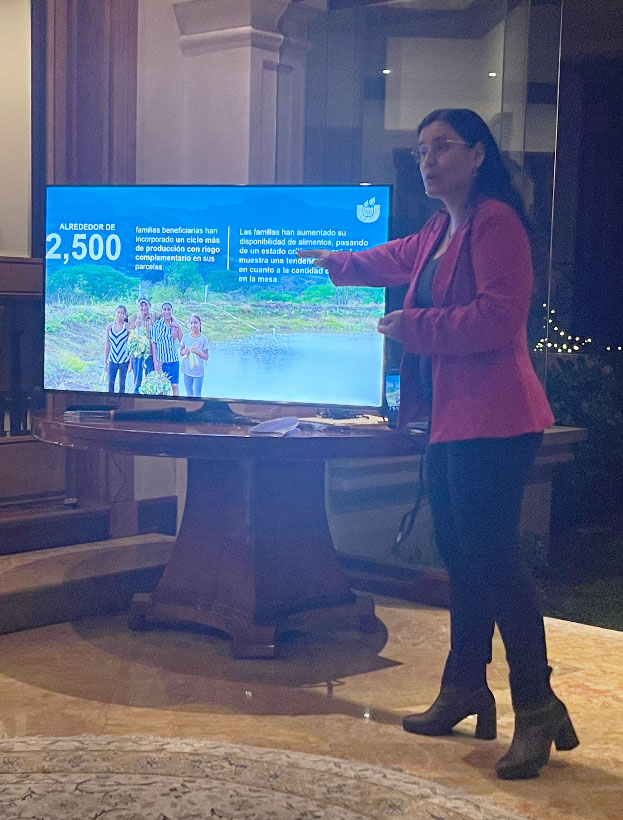
She also highlighted how CATIE contributes to addressing challenges such as water security and climate change, with innovations in the production of cocoa and livestock, for example.
The Ambassador stressed the importance of management and adoption of good practices in water management in her country, where they face a more adverse water situation than Costa Rica. She also expressed her interest in learning from the experiences of experts in the field and thanked CATIE for co-organizing the event.
Ibrahim highlighted the relevance of the water issue in the current context of climate change and shared CATIE's experiences in the creation of resilient production systems and water resource management through adaptation measures, such as water harvesting.
The purpose of the activity was to put the water issue in perspective in the context of the main water shortage shared between the areas of the Central American Dry Corridor and the reality of water scarcity, even more critical and in a context of greater adversity, in the United Arab Emirates.
The event was attended by the executive president of the Costa Rican Institute of Aqueducts and Sewerage (AyA), the Coordinator of the Water Resources Center for Central America and the Caribbean (HIDROCEC) of the National University, and representatives of civil society organizations.
Following the presentation, this group engaged in a discussion on water access and quality, where Manuel Otero, Director of the Inter-American Institute for Cooperation on Agriculture (IICA), explained the work of the entity in Latin America and the Caribbean related to water resource management.
All the interventions underscored the importance of immediate action, the need for cooperation and the willingness to collaborate and create synergies to address the challenges of water resource management.
The Ambassador of the United Arab Emirates in Costa Rica reiterated their commitment to collaborate and willingness to consider joint project proposals.
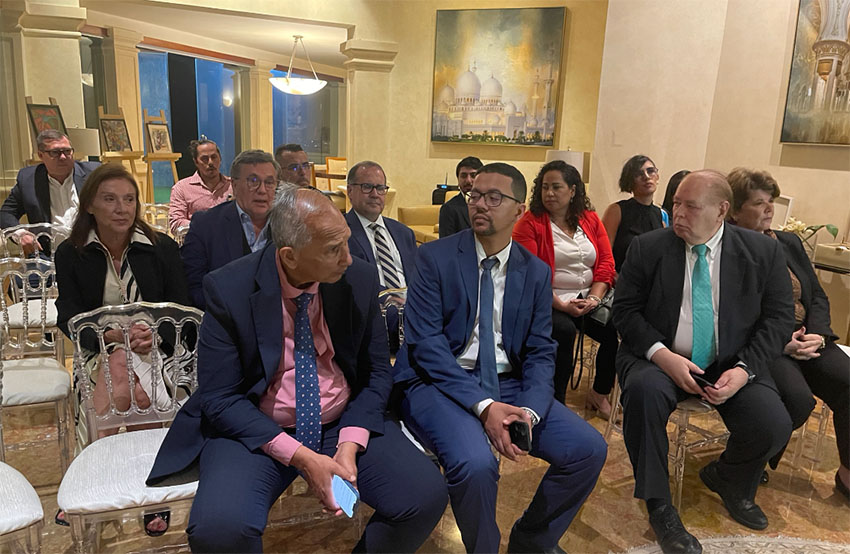
More information:
Laura Benegas
Coordinator
Watershed, Water Security and Soil Unit
CATIE
laura.benegas@catie.ac.cr
Written by:
Karla Salazar Leiva
Communicator
Communications and Marketing Office
CATIE
karla.salazar@catie.ac.cr

